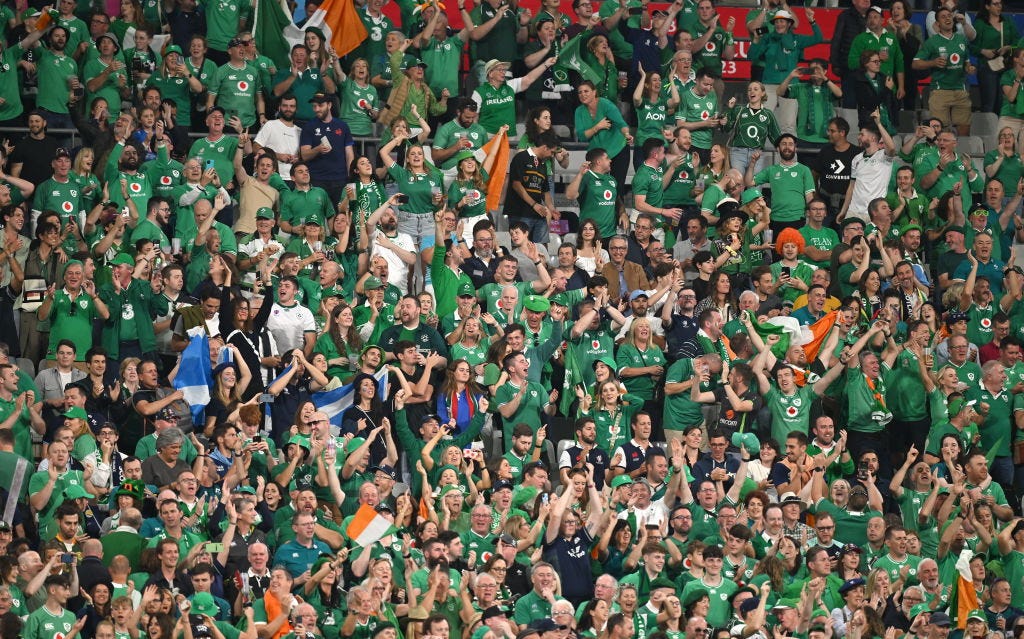A sea of green
ABs face 'home' team in vibrant form, while the Black Caps prepare for potential orange-peel game (and a bit of other stuff).
While watching Ireland make a joke of the idea that Scotland had a chance to cause an upset, thoughts automatically projected a week forward.
In particular, two questions started taxing me.
Q: Can this All Blacks team beat this Ireland team?
A: Of course they can.
Q: Okay then, how?
A: Good question, I’m glad it’s not my job to figure that out?
It…
Keep reading with a 7-day free trial
Subscribe to The Bounce to keep reading this post and get 7 days of free access to the full post archives.




